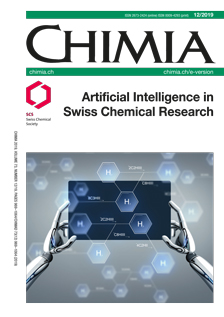Pharmacoepidemiology and Big Data Analytics: Challenges and Opportunities when Moving towards Precision Medicine
DOI:
https://doi.org/10.2533/chimia.2019.1012PMID:
31883553Keywords:
Big data, Machine learning, Medicine, PharmacoepidemiologyAbstract
Pharmacoepidemiology is the study of the safety and effectiveness of medications following market approval. The increased availability and size of healthcare utilization databases allows for the study of rare adverse events, sub-group analyses, and long-term follow-up. These datasets are large, including thousands of patient records spanning multiple years of observation, and representative of real-world clinical practice. Thus, one of the main advantages is the possibility to study the real-world safety and effectiveness of medications in uncontrolled environments. Due to the large size (volume), structure (variety), and availability (velocity) of observational healthcare databases there is a large interest in the application of natural language processing and machine learning, including the development of novel models to detect drug–drug interactions, patient phenotypes, and outcome prediction. This report will provide an overview of the current challenges in pharmacoepidemiology and where machine learning applications may be useful for filling the gap.Downloads
Published
2019-12-18
Issue
Section
Scientific Articles
License
Copyright (c) 2019 Swiss Chemical Society

This work is licensed under a Creative Commons Attribution-NonCommercial 4.0 International License.
How to Cite
[1]
A. M. Burden, Chimia 2019, 73, 1012, DOI: 10.2533/chimia.2019.1012.







